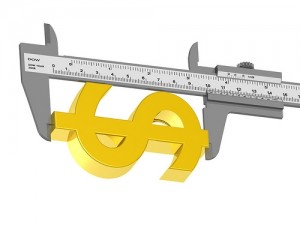GDP: Improving the “Grossly Distorted Picture”
Feb 7th, 2013 | By admin | Category: Economics and GDPBy Suzanne York, www.howmany.org
Recently the Post Carbon Institute hosted a web chat called Enough is Enough: Exploring the path towards “America the Possible featuring the work of two authors working diligently to change the endless economic growth narrative so entrenched in today’s global society.
James Gustave Speth is author of America the Possible: Manifesto for a New Economy, and a highly respected environmentalist. He has been administrator of the United Nations Environment Programme and dean of the Yale School of Forestry and Environmental Studies, amongst a multitude of other positions. The other participant was Rob Dietz, an ecological economist who just penned Enough is Enough: Building a Sustainable Economy in a World of Finite Resources.
The web chat was an informal conversation, but the topic – reconfiguring an economic system predicated on unsustainable growth – is a critical one that needs to get heard in Washington, London, Tokyo and beyond. If you’re tired of negative news and wondering how to improve things, these authors suggested creating a society that puts well-being, happiness, and environmental health above monetary gain and more stuff.
Why bother changing the status quo? A great deal of our political and economic discourse depends on the deeply misleading indicator Gross Domestic Product (GDP). For starters, we need an indicator that puts a positive value on the health of people and society, and one that puts a positive value on harboring resources for future generations. GDP does neither. It adds together good and bad as if they were the same, treating bad health as good because you need to see a doctor and buy medicine. And it rises when we extract resources from the earth or cut down a forest, but is unchanged when we leave those resources for future use. More can be read about how to overcome unsustainable growth in the books above, as well as in this report by some noted ecological economists, and also the work by the policy group DEMOS. “It’s a wacky measurement”, said Speth, who has coined it as “grossly distorted picture.”
Due to this body of work, Dietz said that concerning GDP, the theoretical work is largely done. Good alternatives exist, such as the Genuine Progress Indicator. We know what many of the new models and/or replacement measures could be; the question, Dietz said, “is how to actually put them in place.”
Neither Speth nor Dietz are anti-growth, but instead are in favor of an economy that grows not in size but in our ability to have healthy, happy lives, with employment that sustains communities. They call for growth in education, green jobs, and availability of affordable health care.
What is needed to jump-start this change is a large, persistent effort to replace GDP as the prevailing indicator. In Dietz’s words, “nothing will change unless we have this effort to push it through”. For example, a new economy coalition could make it an on-going project to persuade government bureaus (such as the U.S. Bureau of Economic Analysis) to change their directive (currently based on GDP).
“There’s no reason why we can’t start doing these things now,” according to Speth. People should start talking about the need to change the system; a focus on the new economy can forge a positive, rallying vision. Jobs are obviously a big concern for many, and Speth mentioned community revitalization and ecological restoration as types of work supported by a new economy. And communities should be reinventing themselves, and taking a closer look at initiatives such as community banking and the transition town movement.
According to Speth, fixing our broken economic system is “an easy issue, in a way”, because it’s something for all people to come together on and it is a positive platform. There has been “enough waiting, enough delaying,” said Speth, and “it’s time to get moving”, especially in the face of global climate change and government intransigence in Washington.
Both authors reiterated what many academics, scientists, and others have been saying, that increasing GDP does not equal well-being. Economic growth does not make people happier, as has been noted in numerous studies. Both writers lay out coherent blueprints on how to build a society that puts people over profits and material goods.
Dietz commented that “the U.S. is good at growing GDP but not at things that really matter, such as equality, jobs, health, and happiness.” This is what bureaucrats and citizens need to be talking about, and pushing the government to be a leader in the things that actually matter for our well-being and long term survival.
There is not better time to start than today. “Waiting,” Dietz noted, “carries so much greater risk than taking bold actions.”
Suzanne York is a senior writer with the Institute for Population Studies
(photo credit: Bill David Brooks, http://www.flickr.com/photos/8011986@N02/2965137520/)

